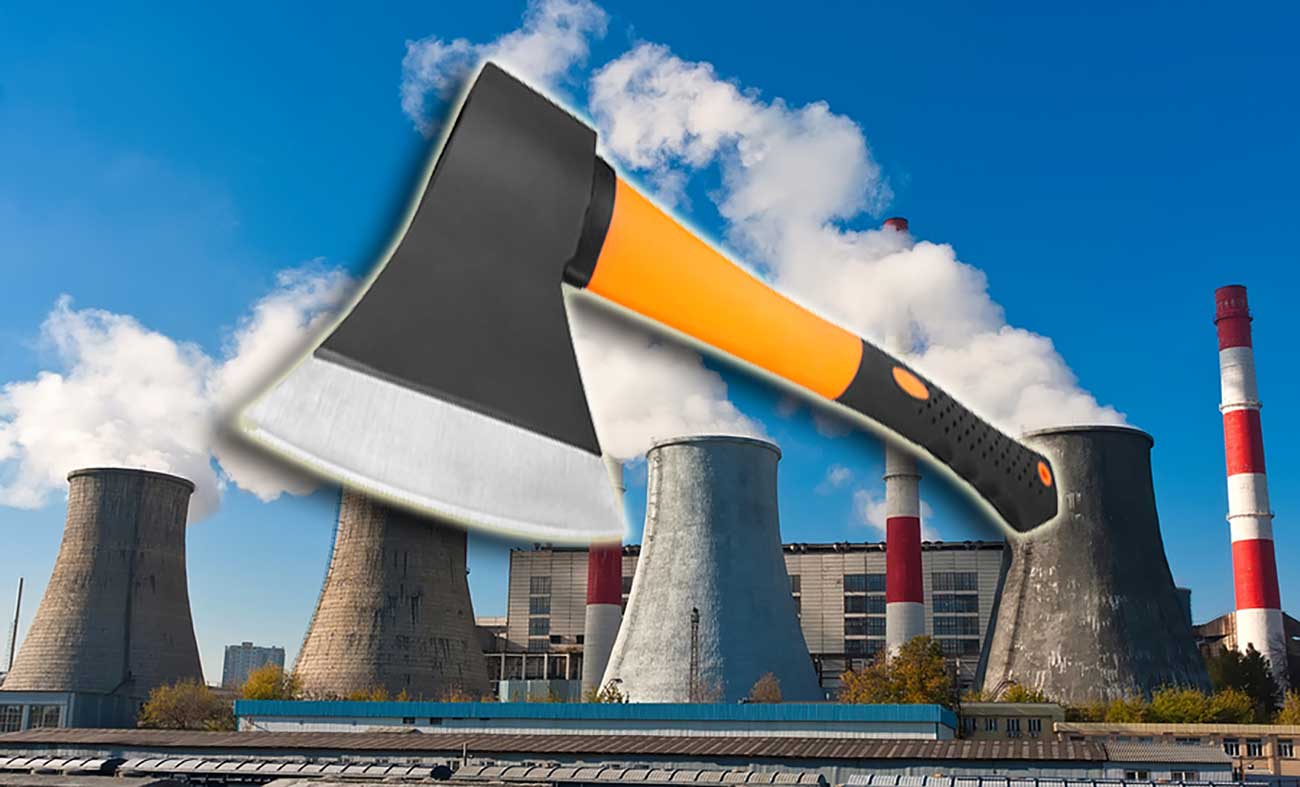Unless you’ve been living under a rock this past week, you’ll have heard that Australia has achieved the dubious distinction of being the first country in history to repeal a carbon tax. With the unholy support of so-called independents, the repeal sailed through the Senate. This to the jubilation of the polluters, energy companies and fossil fuel companies, some of whom had decked out their compliant senators in high visibility vests for the big vote.
I tell you, you couldn’t make this stuff up!
However now that one of the most controversial pieces of legislation in recent Australian history has been tossed on the scrapheap, awkward questions are being raised:
1. Was the carbon tax working?
2. Has our PM has been economical with the truth on this subject?
A recent study by the Australian National University (ANU) would seem to suggest the carbon tax was indeed doing its job and doing it very well. Focusing on the National Electricity Market (NEM), the research looks at the impact of the carbon price on the electricity sector between 1 July 2012 and 30 June 2014.
The study concludes:
“Over this period, electricity demand in the NEM declined by 3.8 per cent, the emissions intensity of electricity supply by 4.6 per cent, and overall emissions by 8.2 per cent, compared to the two-year period before the carbon price.”
Associate Professor Frank Jotzo, director of the Centre for Climate Economics and Policy, and co-author of the report told the Sydney Morning Herald.
“We see the carbon price doing what it was meant to do, and what it was expected to do, namely dampen demand and shift the supply from dirtier to cleaner sources of electricity.”
The reason for the tax — to change behaviour to reduce emissions — appears then to have been highly successful. For further details read a summary here.
The second question of how history will judge whether or not the Australian public has been well served by our representatives is also clear cut. Surely this must be a resounding “NO”. The multi million dollar lobbying campaign (read propaganda) from the fossil fuel industries has been swallowed without question by many of our pollies and alleged opinion formers.
Whether consciously or subconsciously, the message that the carbon tax and green energy subsidies are solely responsible for enormous energy price hikes has been regurgitated ad nauseum. Such has been the enthusiasm of some pro-fossil fuel elected representatives to present the case of big energy companies that any semblance of neutrality, or a fair examination of the facts to form a balanced opinion, is left behind in favour of political gain.
While the conservatives were perhaps the keenest to take up the cause of the big energy companies (refer to the senators in high visibility vests mentioned above), we also recall the efforts of Labor politicians such as Martin Ferguson, spruiking the benefits of coal and oil at every opportunity.
Previously the Minister for Energy under the Labor government, Ferguson demonstrated the worst example of the “revolving door” when he left office to join the energy industry he once presided over as minister.
As the carbon tax recedes into legislative history, drawing the curtain on one of the most controversial episodes in Australian political history, it’s time to ask the questions. Was the carbon tax working? And did we get sold a pup (or is that PUP) by those we elected?
Sure it’s too early to make clinical judgements but it would appear Australians, who have demonstrated their support of renewable energy in polls and through domestic solar systems, were submitted to a fear campaign rather than being presented with the facts. Debate will continue to rage as to why we have jettisoned a tax that was very successful in doing the job it was intended to do.
Perhaps the only conclusion to be made, one that will judge our present government harshly, is that the reason for the repeal of the carbon tax was purely ideological.
As the ANU study concluded, somewhat wistfully in retrospect, “…for emissions pricing to have its full effect, a stable, long-term policy framework is needed.”
Hear, hear.


 RSS - Posts
RSS - Posts



We (Australia) should now commission our CSIRO,to work urgently on a solarpower model that will be the envy of the world! This( solar-power) will be a huge employer & export earner,I am certain that csiro would have the entreprenurial inventiveness to succeed at a project like this.The Abbott govt.though is beholden to the British Banking Elites,they would certainly not want us to succeed in this endeavor,as their mining ownership would suffer financially.This aside,Australia should NOT BE GOVERNED BY BRITAIN! So1,Australian patriots unite & force this this govt. to return funds that CSIRO earned from international patents,to CSIRO,to allow them to help this nation & the world into pollution free,carbon free,contamination free,plentiful SOLAR-POWER!
Bullshit, the wrong people were making money out of the tax, just a great labor rip off –
If enough people gave a stuff ~ and had a few guts (UNaustralian, I know!) ~ they’d shed their dependence and pull the system down simply by absolutely refusing to co-operate with it. While ever the bureaucracies and ‘governments’ are allowed to flourish like blackberries in bullshit, purely on a makework basis ~ and pull down pay and perks that Ned Kelly could only have fantasised about, those on the lower wrungs will go on copping it (unpredictably!) where the sun don’t shine.